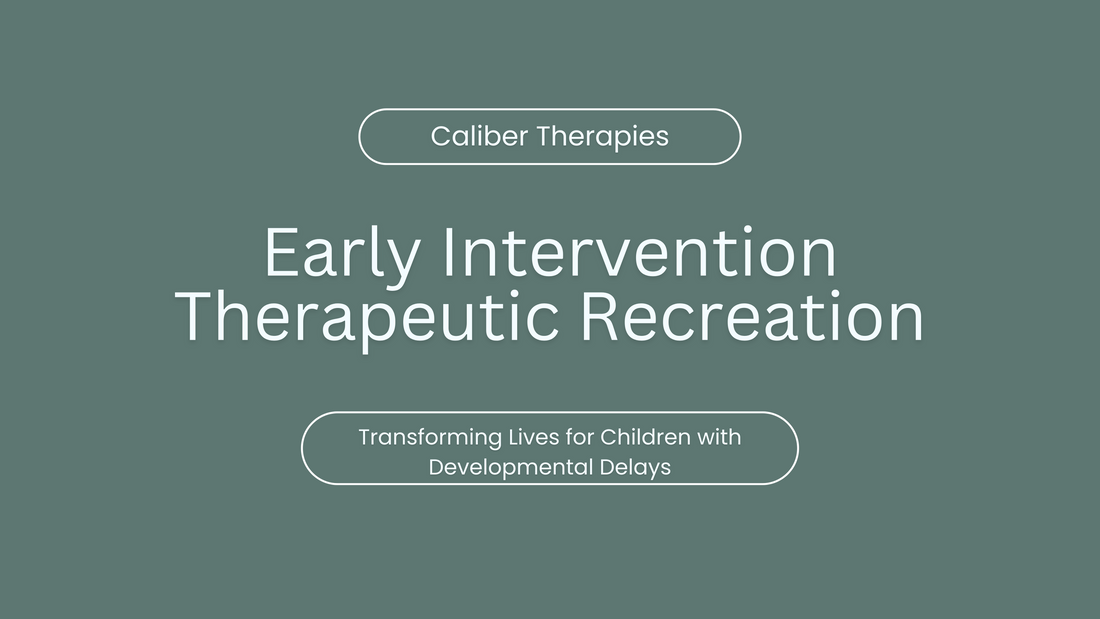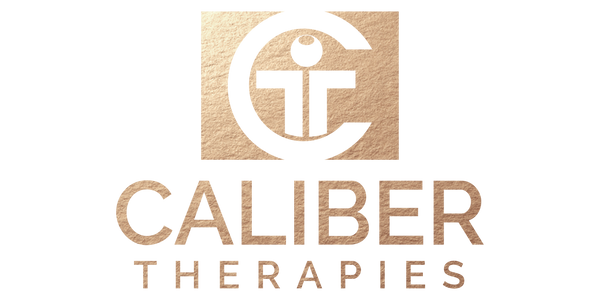
Early Intervention Therapeutic Recreation: Transforming Lives for Children with Developmental Delays
Share
Early intervention therapeutic recreation represents a powerful, evidence-based approach that harnesses the natural healing power of play to support children with developmental delays. This specialized field combines recreational activities with therapeutic goals, creating engaging experiences that promote physical, cognitive, social, and emotional development in young children who need extra support.
For parents navigating the complex world of developmental delays, understanding therapeutic recreation can open doors to new possibilities for their child's growth. Unlike traditional therapy settings that may feel clinical or intimidating, therapeutic recreation creates joyful, meaningful experiences that children eagerly anticipate while simultaneously addressing crucial developmental milestones.
Research consistently demonstrates that early intervention services, particularly those incorporating play-based approaches like therapeutic recreation, yield significantly better outcomes when implemented before age five. This comprehensive guide explores how therapeutic recreation works, its benefits, implementation strategies, and practical steps parents can take to access these transformative services.
What is Early Intervention Therapeutic Recreation?
Early intervention therapeutic recreation is a specialized service that uses recreation and play-based activities as therapeutic tools to address developmental delays in children from birth to age five. This approach recognizes that play is the primary way young children learn about their world, develop skills, and build relationships.
Certified therapeutic recreation specialists work collaboratively with families and other early intervention professionals to design individualized programs that target specific developmental goals while maintaining the fun, engaging nature of recreational activities. These programs may include adapted sports, creative arts, music therapy, nature-based activities, sensory play, and social games.
The Science Behind Play-Based Therapy
Research in neuroscience and child development consistently shows that play-based interventions activate multiple brain regions simultaneously, promoting neural plasticity and accelerating skill acquisition. When children engage in enjoyable activities, their brains release neurotransmitters that enhance learning, memory formation, and emotional regulation.
The multisensory nature of therapeutic recreation activities provides rich input that supports the development of neural pathways essential for motor skills, language development, social cognition, and emotional regulation. This holistic approach addresses the interconnected nature of child development, recognizing that gains in one area often facilitate progress in others.
Understanding Developmental Delays in Children
Developmental delays occur when children do not reach developmental milestones within the expected timeframes. These delays can affect various domains of development, including:
Motor Development
- Gross motor skills: Large muscle movements like crawling, walking, jumping
- Fine motor skills: Small muscle coordination for tasks like grasping, drawing, self-feeding
Communication Development
- Receptive language: Understanding spoken language and following directions
- Expressive language: Using words, gestures, or other methods to communicate needs and ideas
Cognitive Development
- Problem-solving abilities: Thinking skills and reasoning
- Memory and attention: Focus, concentration, and information retention
Social-Emotional Development
- Social interaction: Playing with others and forming relationships
- Emotional regulation: Managing feelings and responding appropriately to situations
Adaptive Development
- Self-help skills: Feeding, dressing, toileting, and other daily living tasks
- Independence: Age-appropriate autonomy in various settings
Therapeutic recreation addresses these developmental areas through carefully designed activities that target specific skills while maintaining the child's engagement and motivation.
Core Benefits of Therapeutic Recreation
Enhanced Motor Skill Development
Therapeutic recreation activities naturally incorporate movement patterns that strengthen both gross and fine motor skills. Obstacle courses improve balance and coordination, while art projects develop hand-eye coordination and finger dexterity. The playful context motivates children to practice movements repeatedly, leading to improved muscle strength, coordination, and motor planning abilities.
Improved Communication Skills
Group recreational activities provide natural opportunities for communication development. Children learn to express wants and needs, follow directions, take turns, and engage in back-and-forth interactions. Music-based activities, storytelling, and dramatic play particularly support language development by providing meaningful contexts for communication.
Social Skill Building
Structured play experiences teach children essential social skills including sharing, cooperation, turn-taking, and conflict resolution. Therapeutic recreation specialists carefully facilitate these interactions, providing support and guidance as children learn to navigate social situations successfully.
Emotional Regulation and Self-Confidence
Success in recreational activities builds self-esteem and confidence while providing outlets for emotional expression. Children learn coping strategies through play scenarios and develop resilience as they experience both challenges and achievements in a supportive environment.
Sensory Integration
Many children with developmental delays have sensory processing differences. Therapeutic recreation activities can be adapted to provide appropriate sensory input, helping children learn to process and respond to sensory information more effectively.
Family Engagement and Support
Family-centered therapeutic recreation approaches actively involve parents and caregivers, providing them with strategies and activities they can continue at home. This involvement strengthens family bonds while extending therapeutic benefits beyond formal sessions.
Key Components and Approaches
Assessment and Goal Setting
Effective therapeutic recreation programs begin with comprehensive assessments that identify the child's strengths, interests, and areas needing support. These assessments inform the development of individualized goals that are:
- Specific: Clearly defined and measurable
- Achievable: Realistic given the child's current abilities
- Relevant: Meaningful to the child and family
- Time-bound: Include target timeframes for achievement
Activity Modification and Adaptation
Therapeutic recreation specialists excel at modifying activities to ensure all children can participate successfully. This might involve:
- Environmental modifications: Adjusting lighting, noise levels, or physical space
- Equipment adaptations: Using specialized tools or adaptive equipment
- Rule modifications: Simplifying games or changing requirements
- Support strategies: Providing visual cues, verbal prompts, or physical assistance
Evidence-Based Interventions
Quality therapeutic recreation programs incorporate evidence-based practices such as:
- Applied Behavior Analysis (ABA) principles for skill acquisition
- Social Stories to teach appropriate behaviors
- Peer-mediated interventions to promote social skills
- Sensory integration techniques
- Positive behavior support strategies
Interdisciplinary Collaboration
Therapeutic recreation specialists work closely with other professionals including:
- Speech-language pathologists
- Occupational therapists
- Physical therapists
- Special education teachers
- Developmental pediatricians
- Psychologists
This collaborative approach ensures consistent goals and strategies across all interventions, maximizing the child's progress.
Implementation in Early Intervention Programs
Program Models
Therapeutic recreation can be implemented through various models:
Center-Based Programs: Children attend structured programs at specialized facilities with dedicated therapeutic recreation spaces and equipment.
Home-Based Services: Specialists provide services in the family's natural environment, adapting activities to available space and materials.
Community-Based Programs: Services delivered in community settings like parks, libraries, or recreation centers, promoting inclusion and community participation.
Hybrid Models: Combining multiple approaches to meet individual family needs and preferences.
Frequency and Duration
The optimal frequency and duration of therapeutic recreation services depend on individual needs, but research suggests:
- Minimum effective dose: At least 2-3 sessions per week for meaningful progress
- Session length: Typically 30-60 minutes for young children
- Program duration: Continuous services with regular reassessment and goal adjustment
Quality Indicators
High-quality therapeutic recreation programs demonstrate:
- Credentialed staff: Certified therapeutic recreation specialists with early intervention training
- Individualized programming: Services tailored to each child's unique needs and interests
- Family involvement: Active engagement of parents and caregivers
- Data collection: Regular monitoring of progress toward goals
- Safety protocols: Comprehensive risk management and emergency procedures
Family-Centered Care Strategies
Parent Education and Training
Successful therapeutic recreation programs provide parents with:
- Understanding of developmental milestones and their child's specific needs
- Activity ideas that can be implemented at home
- Behavior management strategies for challenging situations
- Resource information about community supports and services
Cultural Responsiveness
Programs must be sensitive to family cultural backgrounds, incorporating:
- Culturally relevant activities and materials
- Multilingual support when needed
- Respect for family values and traditions
- Flexible scheduling to accommodate family needs
Sibling and Extended Family Involvement
Including siblings and extended family members in therapeutic recreation activities:
- Strengthens family bonds and understanding
- Provides peer models for the child with delays
- Reduces family stress by creating positive shared experiences
- Builds support networks within the family system
Celebrating Achievements
Recognizing and celebrating progress, no matter how small, maintains motivation and builds confidence. Strategies include:
- Visual progress charts that children can understand
- Achievement certificates for reaching milestones
- Photo documentation of activities and accomplishments
- Family celebration rituals for significant achievements
Supporting Therapeutic Recreation at Home
Creating a Supportive Environment
Families can enhance therapeutic recreation benefits by:
Establishing Play Spaces: Designate areas for active play, quiet activities, and sensory experiences.
Gathering Materials: Collect art supplies, musical instruments, balls, puzzles, and other engaging materials.
Maintaining Routines: Incorporate therapeutic activities into daily routines for consistency.
Ensuring Safety: Create safe environments where children can explore and take appropriate risks.
Simple Activities Families Can Try
Motor Skills Activities:
- Obstacle courses using pillows, chairs, and tape
- Dance parties with different types of music
- Playground visits focusing on climbing and swinging
- Bike riding or scooter practice
Communication Activities:
- Storytelling with picture books
- Singing songs with actions
- Playing simple board games
- Cooking together with narration
Social Skills Activities:
- Playdates with structured activities
- Family game nights
- Community events and outings
- Volunteer activities appropriate for children
Sensory Activities:
- Water play in bathtubs or kiddie pools
- Sandbox or kinetic sand exploration
- Nature walks collecting different textures
- Art projects with various materials
Building Community Connections
Families can extend therapeutic recreation benefits by:
- Joining parent groups for children with special needs
- Participating in inclusive recreation programs in the community
- Connecting with other families facing similar challenges
- Advocating for inclusive playground equipment and programs
Conclusion
Early intervention therapeutic recreation offers a powerful, evidence-based approach to supporting children with developmental delays through the natural medium of play. By combining the joy and engagement of recreational activities with targeted therapeutic goals, these programs create meaningful opportunities for growth across all developmental domains.
The key to success lies in finding quality programs that embrace family-centered care, employ qualified professionals, and maintain flexibility in their approaches. When families are actively involved and therapeutic strategies extend into home and community settings, children with developmental delays can achieve remarkable progress while building confidence, social connections, and life skills.
For families beginning this journey, remember that every child is unique, and progress may occur at different rates across different skill areas. Celebrate small victories, maintain realistic expectations, and advocate for your child's needs. The investment in early intervention therapeutic recreation can yield dividends that last a lifetime, setting the foundation for future learning, relationships, and personal fulfillment.
